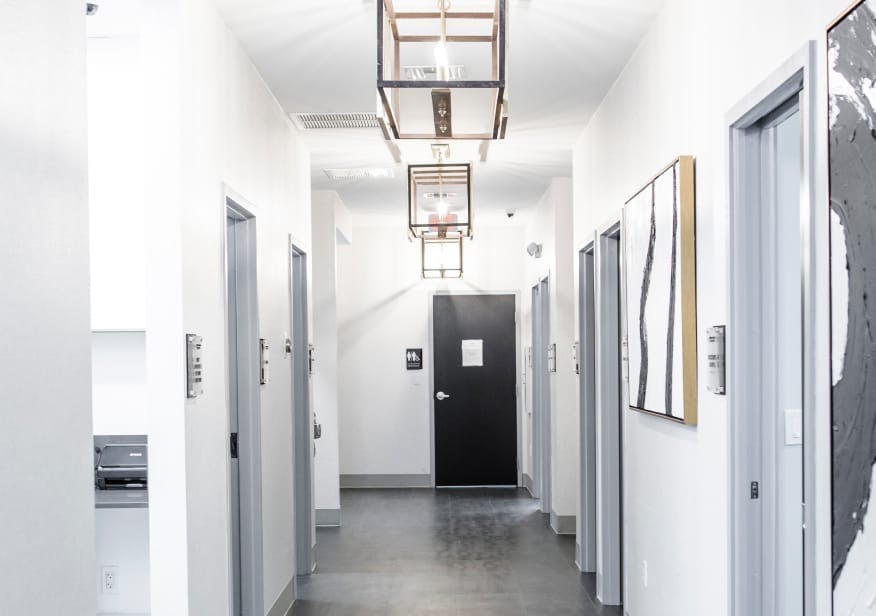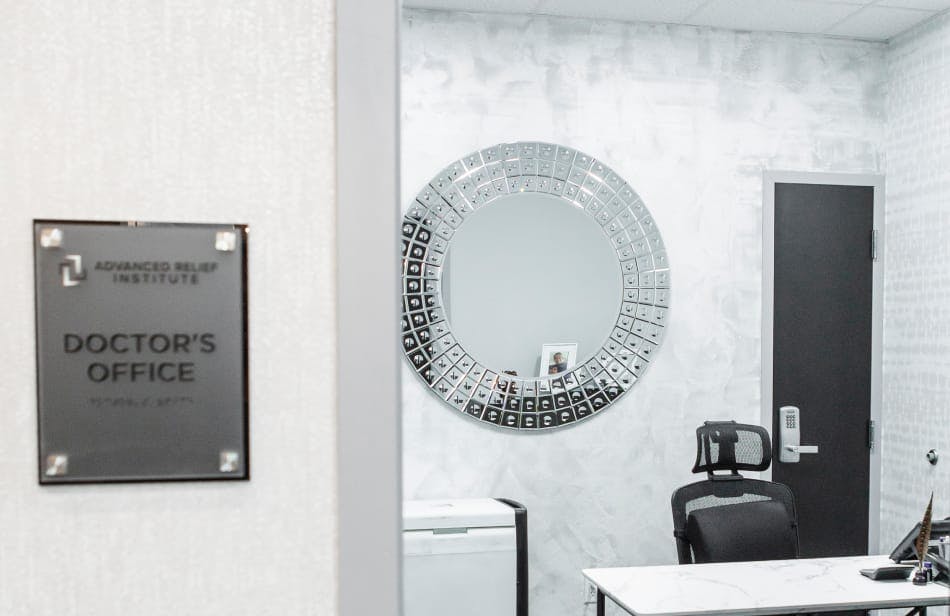Using advanced radiofrequency energy, radiofrequency ablation (RFA) provides a non-surgical approach to treating chronic pain conditions.
Radiofrequency ablation provides a minimally invasive way to manage chronic pain by using radiofrequency energy to heat and eliminate the nerve fibers that carry pain signals to the brain. This treatment can significantly reduce the intensity of pain experienced by patients.
The goal of RFA is to achieve long-lasting pain relief by deactivating the specific nerves responsible for transmitting pain signals while also allowing us to accurately identify the nerves contributing to your pain. This dual benefit ensures that the treatment is effective and precisely targeted, making it ideal for managing conditions like spondylosis.
RFA is a popular choice among non-surgical pain treatments, known for providing substantial, lasting relief. If you’re interested in exploring this option further, contact the Advanced Relief Institute to schedule your initial consultation at our Plantation location.








